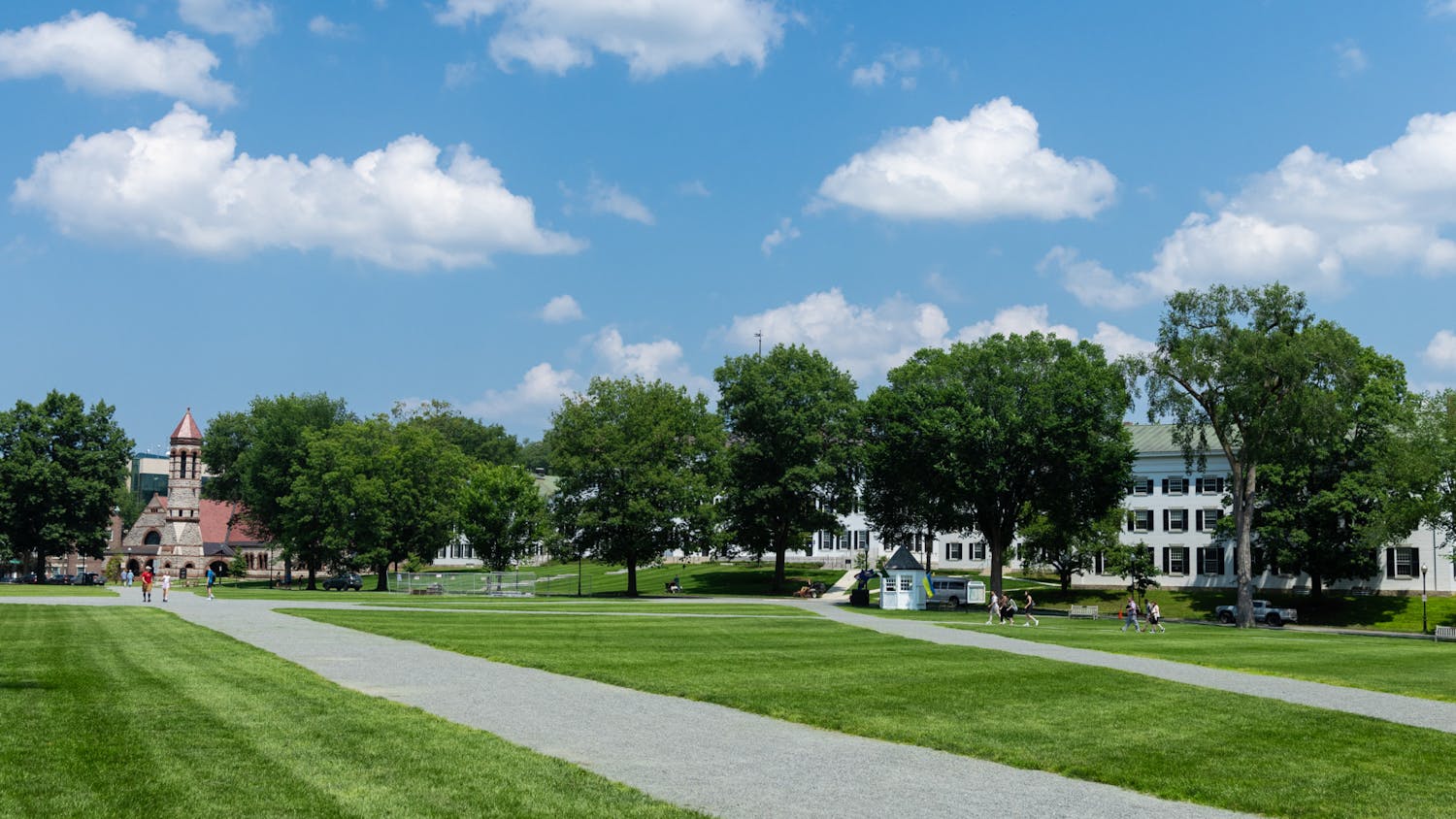Correction appended.
Dartmouth's endowment's ending market value for the 2007-2008 fiscal year fell $100 million as a result of institutional spending on faculty, facilities and financial aid, according to College public affairs officer Sue Knapp. The rate of return on its investments hit 0.5 percent, a significant decrease from the 23.7 percent return of the fiscal year 2006-2007.
"We will take advantage of this time to prepare for the future," Adam Keller, executive vice president for finance and administration, said. "The important part is not to think of this as an immediate emergency but rather an opportunity to carefully manage what we do in the future."
Dartmouth's endowment fared well compared to the national average -- a 3.04 percent endowment decline, according to the Wilshire Trust Universe Comparison Service, which studies gains of endowments of $1 billion and larger.
David Russ, Dartmouth's chief investment officer, manages the endowment and College investments with his team and the Dartmouth Board of Trustees. The endowment finished the fiscal year at $3.66 billion, Knapp said in an e-mail to The Dartmouth. The fund has a large impact on the budget for future years because it is an important part of revenue, Keller said.
"Most importantly, we have to worry about our availability of cash so that we have plenty to meet our payroll first and our bills second," Keller said.
The College is currently analyzing all areas of spending, as it does annually, in order to be as frugal as possible, Keller said. Dartmouth is looking to see if deferring or delaying any building projects is an option to cut costs, he added.
Dartmouth will also be "taking a hard look" at the current financial-aid plan, according to Keller, a decision that lands in the wake of news that the federal government's Pell Grant program will experience a shortfall of more than $5 billion by the conclusion of the 2009 fiscal year. It is too soon to know what changes to Dartmouth's financial aid program, if any, will be necessary to help students cope with the changes, Keller said."We are focusing on how to fulfill our highest priorities, among which is financial aid," Keller said. "We made a major commitment last year, and we will absolutely honor it."
Other priorities include protecting the salaries of faculty and staff at Dartmouth, Keller added.
The endowment is expected to support 45 percent of Dartmouth's 2008" 2009 operating budget, according to Knapp.
Other sources of funding include tuition, sponsored research, the Dartmouth College Fund, sales and other gifts, according to the Oct. 6 Vox for Dartmouth newsletter. Keller added that the poor state of the economy will make fund raising difficult and will likely affect the College's budget.
The three-year, five-year and ten-year investment returns for the College were in the top quartile compared to peer institutions, Knapp said. Dartmouth's return for those periods has been 12.8 percent, 14.3 percent and 12.1 percent, respectively.
Approximately 50 other schools with similar endowment sizes ranked closely to Dartmouth, including Princeton University, Brown University and Johns Hopkins University, Keller added.
Because the College's investments did relatively well this year, Dartmouth does not intend to change its long-term investment strategies. Keller said that short-term plans, however, will be evaluated -- including U.S. equities that have been profitable for the College.
Dartmouth is one of nearly 1,000 colleges that has cash in the Wachovia's Commonfund, which was frozen on Monday when the bank was purchased by Citigroup. In order to make the acquisition seamless, only 26 percent of funds can currently be withdrawn to ensure that every account holder has the same opportunity to withdraw funds before the completion of the transition, the Chronicle of Higher Education reported. The schools will not be able access all of their funds until 2010.
Because Dartmouth has spread its cash across four other banks, Keller said he does not think the frozen Commonfund will impact the College, nor does he believe there will be any loss of money.
"We positioned ourselves this summer to make sure we had enough cash available," he said. "We have a line of credit and a commercial paper line to make sure we have enough cash no matter what happens."
The Chronicle of Higher Education reported that several impacted colleges and universities fear that the freeze may hurt their credit scores. Dartmouth's score is not at risk, Keller said.
Dartmouth was one of 136 colleges asked for its endowment information in an investigation into endowment distribution and financial-aid programs by the U.S. Senate Committee on Finance in January.
A Senate proposal requiring schools to spend 5 percent of their endowment each year was never approved.
The original version of this article, which ran Oct. 3, 2008, incorrectly stated that the endowment lost $100 million in the fiscal year 2007-2008 due to investments, and that it supported 45% of the operating budget for that year. In fact, the $100 million decrease was a result of institutional spending, and the 45 percent figure is a projection of the operating budget for 2008-2009.



